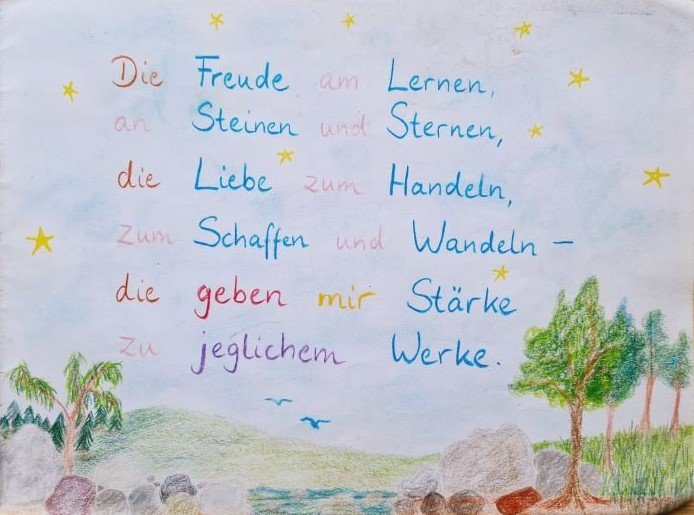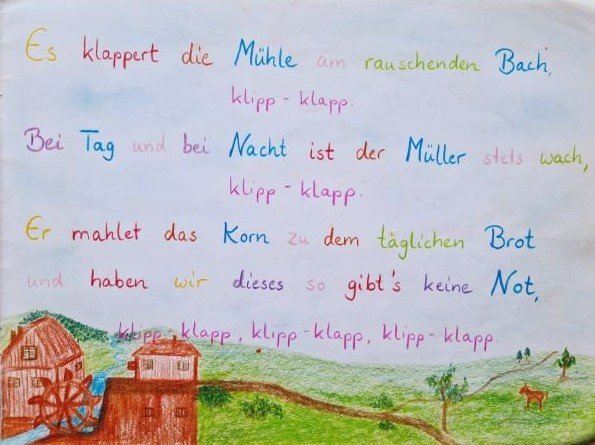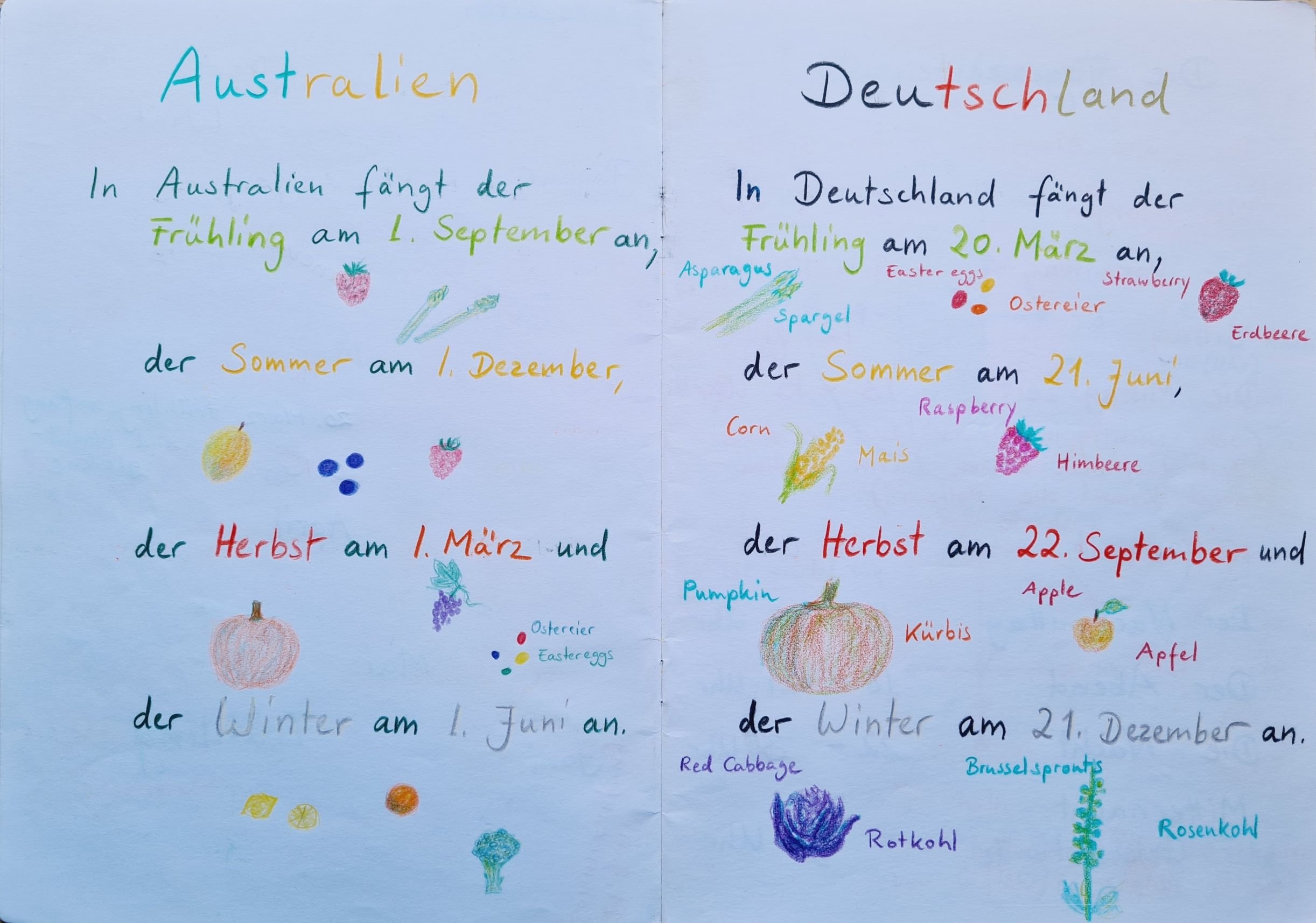Foreign Language

“We begin with foreign language even in the first class. The imitative impulse and moldable condition of the organs of speech that are so marked at this age, serve the child well.”
~Rudolf Steiner
Oral Immersion
Students learn to speak foreign languages through oral immersion in songs, verses, games, rhymes, short stories and simple verbal exchanges.
Small Group Learning
In small groups of up to eight, students take part in
one-hour tutoring sessions twice a week.
The Written Word
Students learn conversational beginnings, and introduction to written language including grammatical structure.
Foreign Languages in Steiner Education
Besides the wonderfully practical advantage of being able to speak and understand another language, learning a foreign language also offers the opportunity to see broader perspectives of life. It introduces the student to the character, customs and traditions, literature, geography and history of different peoples. This helps them appreciate similarities as well as ‘otherness’ in an open-minded way. Once this path has been embarked upon, it stimulates a greater interest in the world and all its peoples, as well as supporting the ability of flexible and mobile thinking.
“Once this path has been embarked upon, it stimulates a greater interest in the world and all its peoples…”
The Beginnings of Experiential Learning
Younger children learn by heart and by ear. When the speech organs are still very plastic, language learning comes naturally when immersed in the oral language. Lessons are conducted mostly, if not entirely, in the language, and have a strong rhythmical element. The children listen and imitate, speak, sing and recite as they are introduced to a range of activities including games, songs, skipping chants, counting rhymes and poems, designed to keep the children within the stream of the language with very little need for translation or explanation. Once a repertoire is built up within the first few lessons, new material is regularly introduced. During this time, the children develop a sensitivity to the intonation of the language as well as a stock of vocabulary.
“They learn songs, games, ring games, and poems that first of all bring to their ear the rhythm, melody and sound of the foreign tongue.”
~Rudolf Steiner
Experiential Learning of the Growing Child
From the age of nine or ten, the new stage of self-awareness and development correlates to more conscious learning. Besides oral work, the children now begin to learn reading and writing in the foreign language. Drawing on what has been learnt in the earlier years, the children will begin to write and read pieces that have until now only been known orally. This familiarity develops confidence with the alphabet sounds of the language and simple grammar. A record of all that is learnt is kept in beautiful and comprehensive bookwork.
“…when the young person is wanting to explore the world around them, it is time to extend into unknown waters.”
Discovering the World
At the point of pre-pubescence, when the young person is wanting to explore the world around them, it is time to extend into unknown waters. History, culture and geography become more prominent. Previously unmet, longer and more varied texts, songs and verses are introduced, recited, written and illustrated or created, and often dramatised. Enjoyment of the language is essential, and lessons are lively and varied whilst maintaining a rigorous focus on the structure and syntax of the language.
Read more about Steiner Education.



